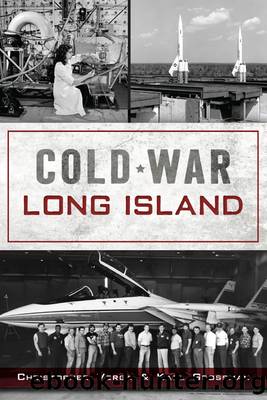Cold War Long Island by Christopher Verga

Author:Christopher Verga
Language: eng
Format: epub
Publisher: Arcadia Publishing Inc.
Published: 2021-01-15T00:00:00+00:00
The Glen Cove Killenworth Estate, which was purchased by Soviet foreign minister Vyacheslav Molotov in the late 1940s. Courtesy of the Library of Congress, Image Collection.
The first fight was over a tax lien, for which Molotov argued he was over-assessed. The Soviets paid a total of $7,324 in taxes, justifying that it was the true assessed value. The $7,324 payment was paid in 1950, but no full payments were made until 1961, when the estate filed for a tax exemption. Congressman Steve Derounian of Roslyn appealed to the Kennedy administration to reimburse Glen Cove the $25,000 a year in back taxes, and if extended as an exemption, an additional $10,000 for other fees and fines the estate accumulated.91 The public fight over the Glen Cove City tax would be waged until 1966, when the estate was granted tax-exempt status due to it being used as the primary residence of the Soviet ambassador and the grounds being used as a recreational facility for other diplomats. Like the German consulate reaching out to German Bund members for recruitment as spies during World War II, Molotovâs presence in Long Island stirred fears of a similar threat. These fears of Soviet spies were further flamed with the arrest of Ethel and Julius Rosenberg. Ethel and Julius were accused of copying hundreds of government documents that had been stolen from a Columbia University safe.92 Most notably, the pair were accused of being involved in the passing of nuclear secrets to the Soviets. The nuclear intelligence was believed to have been stolen by Ethelâs younger brother, David Greenglass, who worked at Los Alamos Laboratory. But once they received Greenglassâs intelligence, the Soviets deemed it useless.93 When caught, David was pressured to give testimony against his sister and brother-in-law to avoid prosecution. The testimony and details of the case exposed the alleged Rosenbergâs drop-off point for the thirty-five-millimeter film was on the platform of Glen Cove Train Station. With the proximity to the Soviet compound, many felt it was more than a coincidence to have Glen Cove as a drop-off destination.
In 1952, the North Shore community of Upper Brookville was caught off guard when the Soviet chief delegate to the United States Valerian Zorin purchased the historic Norwich House. The Norwich House, later named Miller Estate, was comprised of fourteen acres and a nineteen-thousand-square-foot mansion. The purchase price from the Soviet government was undisclosed. The public anxiety around the new neighbors in Glen Cove and Brookville attracted the attention of the CIA. The CIA started surveilling to compile a list of people who were coming and going from both estates. The mayor of Glen Cove and all the mayors up to 1982 wrote letters to the CIA requesting full disclosure of any illegal activities at the estate. The letters would go on to explain that Glen Cove was losing thousands of dollars in tax revenue with the tax exemption for an estate that only served as a spy center.94 Glen Coveâs new Russian neighbors were not quiet and cost the city and the county thousands of dollars daily for security.
Download
This site does not store any files on its server. We only index and link to content provided by other sites. Please contact the content providers to delete copyright contents if any and email us, we'll remove relevant links or contents immediately.
Kathy Andrews Collection by Kathy Andrews(11801)
The remains of the day by Kazuo Ishiguro(8961)
Spare by Prince Harry The Duke of Sussex(5172)
Paper Towns by Green John(5171)
The Body: A Guide for Occupants by Bill Bryson(5067)
Industrial Automation from Scratch: A hands-on guide to using sensors, actuators, PLCs, HMIs, and SCADA to automate industrial processes by Olushola Akande(5042)
Machine Learning at Scale with H2O by Gregory Keys | David Whiting(4289)
Be in a Treehouse by Pete Nelson(4028)
Never by Ken Follett(3927)
Harry Potter and the Goblet Of Fire by J.K. Rowling(3839)
Goodbye Paradise(3795)
The Remains of the Day by Kazuo Ishiguro(3388)
Into Thin Air by Jon Krakauer(3377)
Fairy Tale by Stephen King(3361)
The Cellar by Natasha Preston(3328)
The Genius of Japanese Carpentry by Azby Brown(3281)
120 Days of Sodom by Marquis de Sade(3255)
Reminders of Him: A Novel by Colleen Hoover(3067)
Drawing Shortcuts: Developing Quick Drawing Skills Using Today's Technology by Leggitt Jim(3063)
